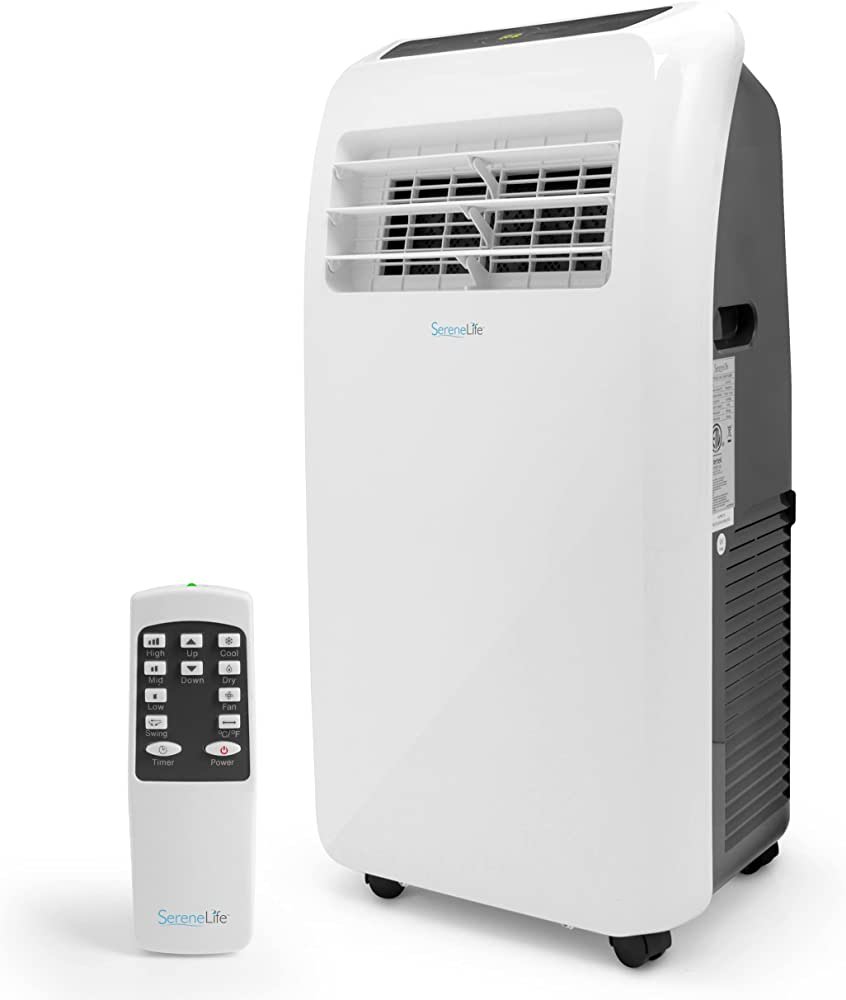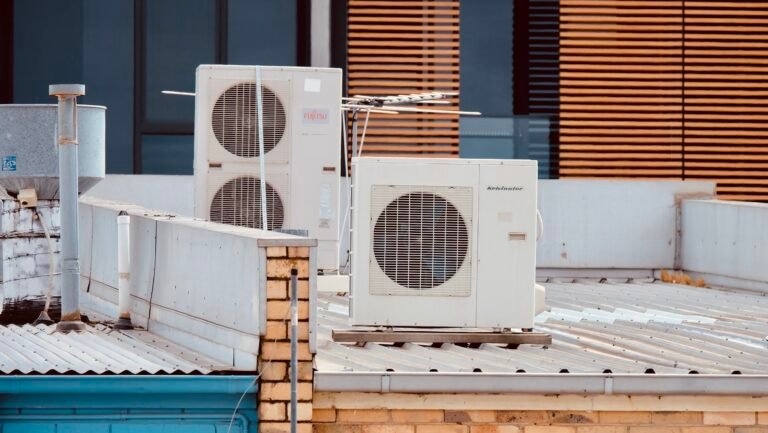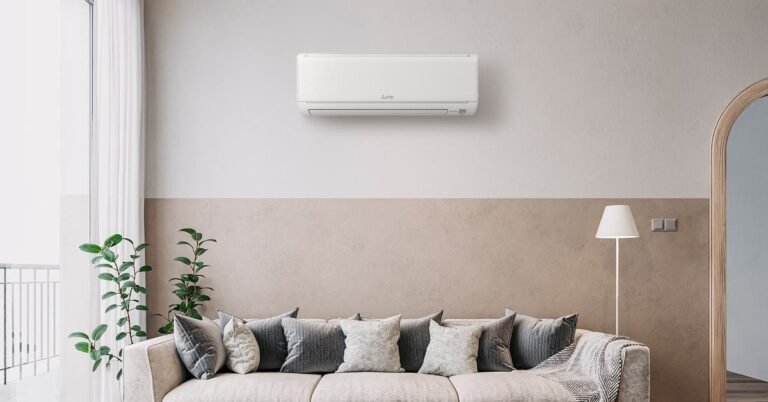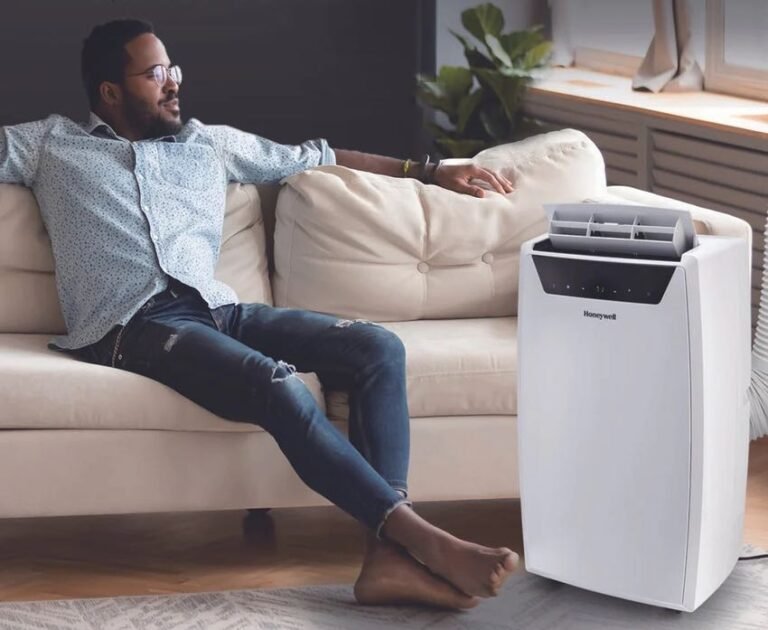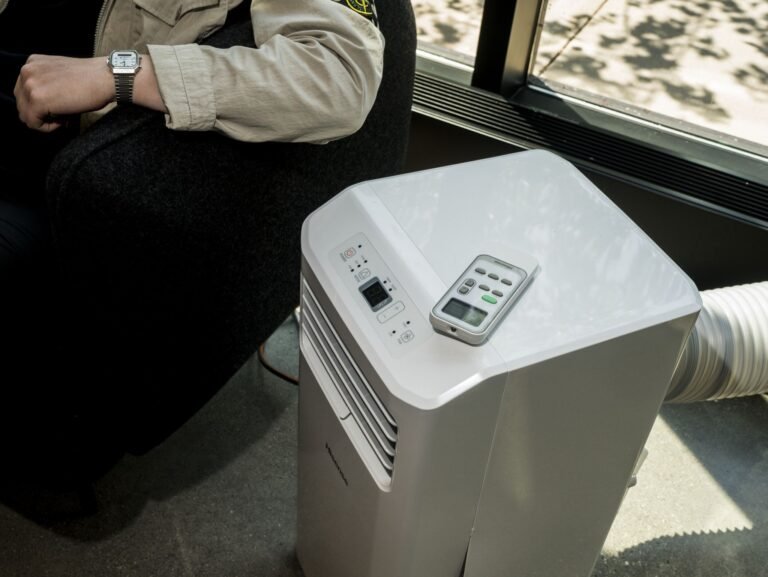Can Portable Air Conditioners Cause Fires? Discover the Truth!
Portable air conditioners can potentially cause fires due to electrical malfunctions or overheating. Now, let’s explore the reasons why portable air conditioners can pose a fire risk and how to prevent such incidents.
The Mechanics Of Portable Air Conditioners
In order to understand whether portable air conditioners can cause fires, it is important to grasp the mechanics of these devices. Portable air conditioners are composed of various components that work together to cool the air. These components include compressors, condensers, evaporators, and refrigerants. The cooling process involves the refrigerant absorbing heat from the air, which is then expelled outside through the condenser. Ventilation is crucial to ensure the proper functioning of air conditioners, as it allows the hot air to escape. Adequate ventilation prevents the accumulation of heat, reduces the risk of overheating, and subsequently minimizes the potential for fires. It is recommended to position portable air conditioners near windows or utilize ventilation hoses to expel hot air outdoors. Additionally, regular maintenance and cleaning of the filters and vents are vital to prevent potential fire hazards caused by dust accumulation. By understanding the mechanics of portable air conditioners and their components, as well as the importance of ventilation, we can mitigate the risk of fires and safely enjoy the benefits of these devices.

Credit: www.homedepot.com
Potential Fire Hazards With Portable Air Conditioners
Potential Fire Hazards with Portable Air Conditioners
Portable air conditioners are a convenient cooling solution, but it’s crucial to be aware of potential fire hazards they may pose. Overloading electrical circuits is a common issue that can lead to fires. Plugging multiple high-powered devices into the same outlet can exceed the circuit’s capacity, causing it to overheat. Faulty wiring and connections can also increase the risk of fire. Damaged or frayed cords may generate heat and create sparks, igniting a fire. Furthermore, inadequate maintenance and cleaning can accumulate dust and debris, obstructing airflow and causing the unit to overheat. Regularly cleaning and inspecting the air conditioner’s vents, filters, and coils is essential to prevent fires.
Preventive Measures To Minimize Fire Risks
Portable air conditioners are a convenient solution for cooling small spaces, but it’s important to be aware of the fire risks associated with them. To minimize these risks, preventive measures should be taken.
Proper installation and positioning of the portable air conditioner is crucial. It is recommended to place the unit at least three feet away from any combustible materials such as curtains or furniture. Adequate ventilation around the unit should be ensured to prevent overheating.
Regular inspection and maintenance of the air conditioner is essential to identify any potential fire hazards. This includes cleaning or replacing the air filters regularly, checking for any leaks in the unit, and ensuring proper electrical connections.
Using surge protectors and fire safety accessories can provide an added layer of protection. A surge protector helps prevent electrical overload, which can lead to a fire. Additionally, using a smoke detector and a fire extinguisher in the vicinity of the portable air conditioner can help in early detection and suppression of fires.
Case Studies: Past Incidents And Their Causes
Portable air conditioners have been known to cause fires in the past. Numerous case studies have highlighted the potential dangers associated with these devices. Reported fire incidents related to portable air conditioners underscore the importance of understanding their causes and taking necessary precautions. Investigation findings have revealed several common causes of fires associated with these units. One key factor is the lack of proper maintenance and cleaning. Accumulated dust and debris can ignite and lead to a fire. Additionally, faulty electrical components, such as frayed wires or overheating motors, can also be responsible for fires. It is crucial to regularly check and maintain portable air conditioners to minimize these risks. Engaging in routine cleaning, inspecting electrical connections, and ensuring proper ventilation are vital steps in preventing fire incidents. By being aware of potential dangers and implementing necessary precautions, users can enjoy the cooling benefits of portable air conditioners without compromising safety.
Safety Standards For Portable Air Conditioners
Portable air conditioners are a popular choice for cooling small spaces, but it is important to consider safety standards before purchasing one. Manufacturers and users should adhere to regulatory guidelines to minimize the risk of fires. Compliance certifications and ratings play a crucial role in ensuring the safety of these appliances.
Manufacturers should follow industry standards and obtain relevant certifications such as UL, ETL, or CSA to demonstrate that their portable air conditioners meet safety requirements. These certifications guarantee that the product has undergone rigorous testing and is safe for use. Users should look for these certifications when purchasing a portable air conditioner to ensure they are buying a reliable and safe appliance.
| Key Considerations when Purchasing a Portable Air Conditioner | |
|---|---|
| 1. Cooling Capacity: | Choose an air conditioner with the appropriate cooling capacity for your space. Too small, and it may struggle to cool effectively; too large, and it may waste energy. |
| 2. Energy Efficiency: | Look for an energy-efficient model with a high SEER (Seasonal Energy Efficiency Ratio) rating to save on electricity costs. |
| 3. Safety Features: | Ensure the portable air conditioner has safety features such as an auto shut-off function in case of overheating or a fire hazard. |
| 4. Installation and Ventilation: | Consider the ease of installation and ventilation requirements of the portable air conditioner to optimize its performance. |
By following the required safety standards and considering these key factors, users can confidently enjoy the benefits of a portable air conditioner while minimizing the risk of fires or other hazards.
Proper Usage And Best Practices
Portable air conditioners are a convenient solution for cooling small spaces, but it is crucial to use them safely to prevent potential fire hazards. Proper usage and best practices can significantly reduce the risk of fires:
- Ensure proper ventilation and airflow by placing the portable air conditioner near a window or installing an exhaust hose.
- Regularly clean or replace the air filters to prevent dust accumulation, which can lead to overheating.
- Keep the area around the air conditioner clear of flammable materials such as curtains, paper, or clothing.
- Do not overload the electrical circuit by plugging in multiple appliances into the same outlet.
- Avoid using extension cords, as they may not handle the power demands of the air conditioner.
- Follow the manufacturer’s guidelines and specifications for installation, usage, and maintenance.
- If you notice any unusual smells, sounds, or signs of overheating, immediately turn off the appliance and contact a professional for inspection.
By following these tips, you can enjoy the benefits of portable air conditioners while minimizing the risk of fires and ensuring a safe environment.
Frequently Asked Questions On Can Portable Air Conditioners Cause Fires
Can Portable Air Conditioners Cause Fires?
No, portable air conditioners are designed with safety features like auto shut-off and overheat protection to minimize the risk of fires. However, it’s important to use them properly, avoid overloading circuits, and keep them away from flammable materials to ensure safe operation.
Conclusion
While portable air conditioners offer convenience and relief during hot summer months, it is essential to use them safely to prevent the risk of fire. Proper maintenance, regular cleaning of filters, and ensuring adequate ventilation can significantly reduce the chances of fire hazards.
By following simple safety guidelines, such as keeping flammable materials away from the unit and avoiding overloading electrical circuits, you can enjoy cool, comfortable air without the worry of fires. Stay safe and cool!

